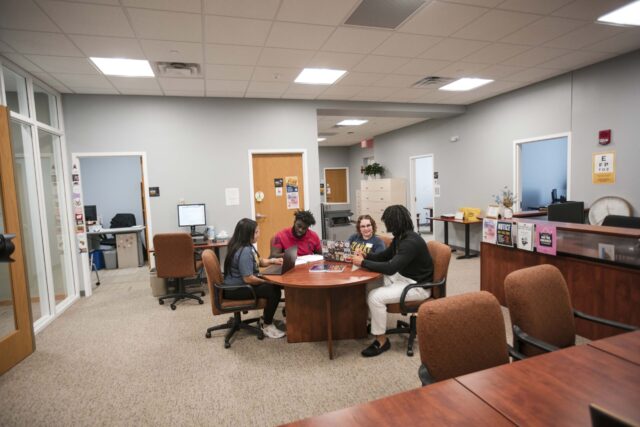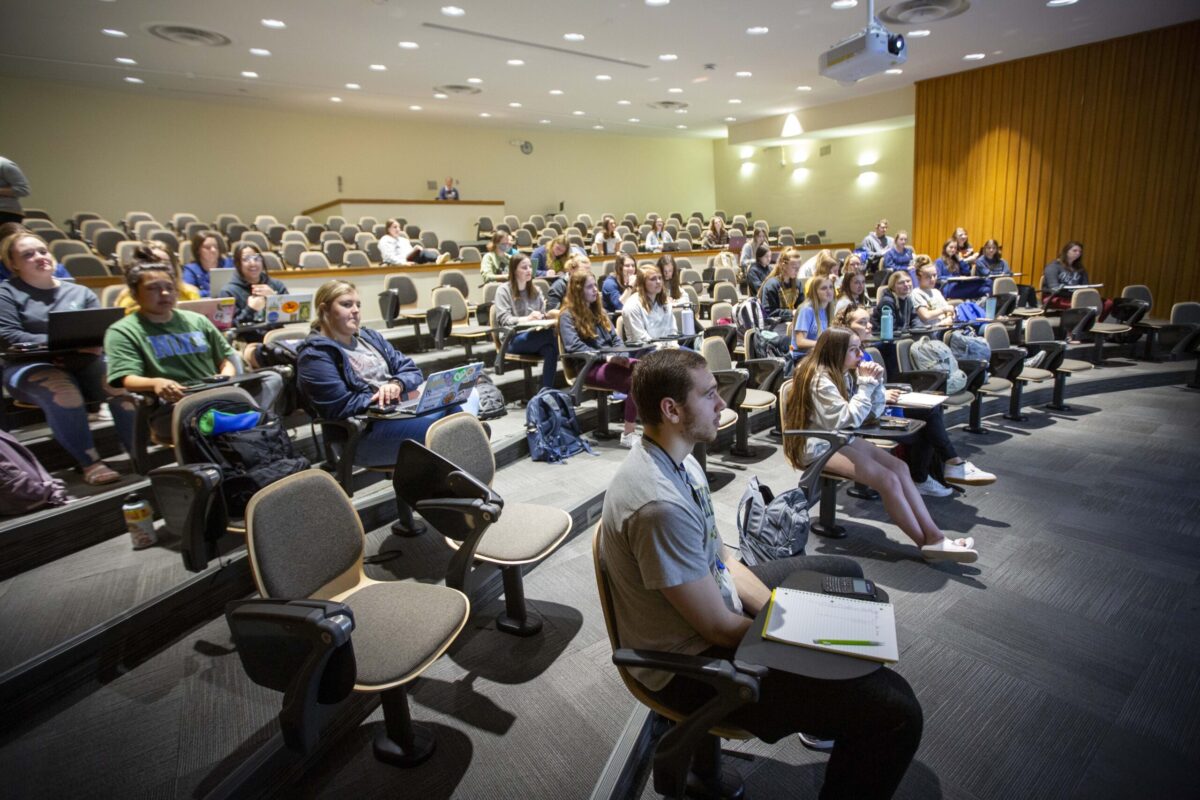Kent Anderson, PhD
“I hope that my students cultivate a critical mind that hungers for truth with a passion for making a difference in the world.”
Studying law is the art of doing what is right, not what is easy. Legal education involves courses in analytic thinking, ethical reasoning, and policy-based analysis. We will help you choose the courses that will best prepare you for the rigors of legal education and the demands made by practicing attorneys. We recommend that you choose a major in the traditionally defined liberal arts disciplines such as philosophy, English, history, mathematics, chemistry, fine arts, religious studies, or foreign languages.

Clarke’s pre-law program will set you apart. You will gain critical thinking, argumentation, and writing skills that are coveted in legal professions. You’ll also develop the capacity to think for yourself, express your thoughts with clarity, and understand the goals and values of the civilized law you seek to serve. You’ll study coursework in symbolic logic, which uniquely prepares you for the difficult “logic games” component of the Law School Admissions Test (LSAT). You may also take an exclusive LSAT prep course. All students have reported increases in their LSAT results as a consequence of this for-credit class; no other institution in the tri-state area offers such a course.
In addition, Clarke’s 3+3 program with the University of Iowa, Drake University, Creighton University, and Marquette University Law Schools allows undergraduate students at Clarke to earn their bachelor and law degrees in six years, saving one full year’s tuition. Students apply to law school during their junior year. The credits earned during their first year of law school will also apply to their undergraduate degree.
Applicants are considered on an individual basis. Apply to Clarke today to begin your journey.
Clarke University offers several faculty-sponsored study abroad experiences to destinations such as Spain, Scotland, Ireland, and Japan. Study abroad trips encourage you to experience different cultures, broaden your mind, and discover your own passions.
At Clarke, you will take advantage of internships in law. These placements are at private law firms or through the Dubuque County Courthouse. Students in the past have engaged in such activities as discovery work, witness reports, transcription, casebook compilation, mock trials, focus groups, and observation of courtroom proceedings. Opportunities of this sort are exceedingly rare at the undergraduate level, making Clarke unique in offering them.
The Clarke Compass is your guide to discover yourself, your passion, and your unique path. Through coursework and out-of-class experiences you will design your own unique educational path to make the most of your time at Clarke.
Life at Clarke is living traditions, being proud, participating in the campus community, and being an active member of our greater community.

I credit all of my success in law school to what I learned in Clarke philosophy classes. They made a huge difference for me in law school and my career.
The median pay in 2017 for lawyers, according to the U.S. Bureau of Labor and Statistics.
Percent of our pre-law graduates who have gotten into law school, have passed the bar, and/or have secured jobs.
Enjoy small class sizes with Ph.D.-level educators.














